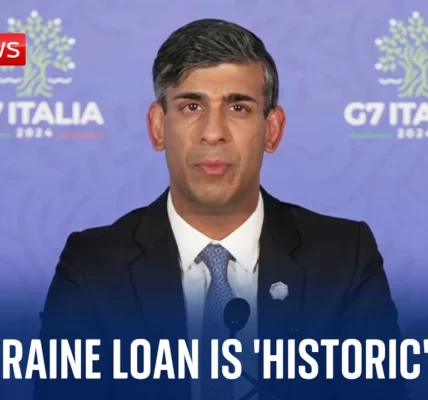Russia Faces Renewed Threat from Islamist Militants

In the wake of recent violent attacks in Dagestan, this article explores the implications of Islamic extremism in Russia, the silence of President Vladimir Putin, and the geopolitical tensions arising from the ongoing conflict with Ukraine.
Introduction
In an alarming turn of events, Russia has experienced a resurgence of violence linked to Islamic extremism, specifically in the southern Republic of Dagestan. Following the tragic attacks that left 20 individuals dead in places of worship, concerns are mounting regarding the stability of President Vladimir Putin’s regime. As Russian officials scramble to assign blame, the implications of these incidents extend beyond national borders, weaving into the complex narrative of Russia’s ongoing conflict with Ukraine and the West.
The Dagestan Attacks
The recent attacks in Dagestan, which targeted both a synagogue and a church, mark a significant escalation in religiously motivated violence within Russia. As the nation grapples with the aftermath, the response from authorities has been swift yet controversial.
Details of the Attacks
- At least 20 people were killed.
- Places of worship were specifically targeted, indicating a troubling trend in religious intolerance.
- No group has claimed responsibility, raising suspicions about sleeper cells within the country.
Government Response
In the wake of the attacks, Russian officials have pointed fingers at various groups, including Islamic extremists and Ukrainian forces. The narrative of foreign involvement seems to serve two purposes: deflecting blame and reinforcing national unity against perceived external threats.
Islamic Extremism in Russia
The threat of Islamic extremism in Russia is not new, but recent events have reignited fears of a resurgence. Experts suggest that the recent attacks may be indicative of a broader pattern of violence associated with radical Islamist groups.
Historical Context
Islamic State has previously claimed responsibility for attacks in Russia, notably in Dagestan, a region with a significant Muslim population. The Moscow concert attack in March, which resulted in 145 deaths, serves as a grim reminder of the potential scale of such threats.
Current Threat Assessment
Analysts warn that the current situation in Dagestan may be a precursor to further violence. Key points include:
- The apparent return of radical Islamist insurgencies that the FSB claimed to have defeated in 2017.
- The growing discontent among Muslim populations in Russia, exacerbated by the ongoing conflict in Gaza.
- The potential for coordinated attacks aimed at provoking anti-Muslim sentiments in major Russian cities.
Putin’s Silence and Political Implications
President Putin’s silence on the recent attacks has raised eyebrows, particularly as his administration grapples with multiple crises simultaneously. The political landscape within Russia is fraught with challenges, and the attacks in Dagestan may complicate Putin’s efforts to maintain control.
The Impact of External Conflicts
The ongoing conflict in Ukraine and the geopolitical tensions with the West have diverted attention away from domestic security issues. Putin’s administration has consistently framed these external conflicts as existential threats, but as violence erupts at home, this narrative may become increasingly difficult to sustain.
Public Perception and Security Concerns
The Russian public’s perception of safety is deteriorating. With high-profile attacks occurring in the heart of Dagestan, citizens are left questioning the effectiveness of their government’s security measures. The Kremlin’s narrative that blames external forces for internal strife may ultimately backfire, leading to greater public unrest.
Conclusion
The recent violence in Dagestan underscores a critical juncture for Russia as it faces renewed threats from Islamist militants. The ramifications of these attacks extend beyond national security, impacting Putin’s political stability and the broader geopolitical landscape. As the situation unfolds, it is imperative for both Russia and the international community to remain vigilant and responsive to the evolving threats of extremism and violence.
For further insights on geopolitical issues and security in Russia, explore our related articles on Islamic Extremism in Central Asia and The Ukraine Crisis: A Comprehensive Analysis.
“`




